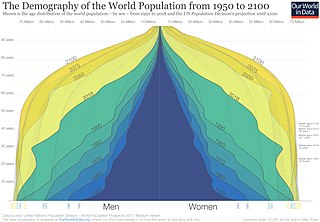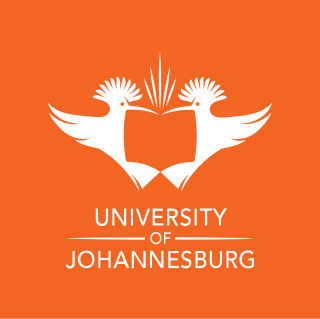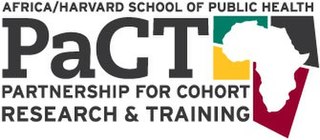Related Research Articles

Demography is the statistical study of populations, especially human beings.

Johannesburg, colloquially known as Jozi, Joburg, or "The City of Gold", is the largest city in South Africa, classified as a megacity, and is one of the 100 largest urban areas in the world. According to Demographia, the Johannesburg-Pretoria urban area is the 26th-largest in the world, with 14,167,000 inhabitants. It is the provincial capital and largest city of Gauteng, which is the wealthiest province in South Africa. Johannesburg is the seat of the Constitutional Court, the highest court in South Africa. Most of the major South African companies and banks have their head offices in Johannesburg. The city is located in the mineral-rich Witwatersrand range of hills and is the centre of large-scale gold and diamond trade.

The University of the Witwatersrand, Johannesburg, is a multi-campus South African public research university situated in the northern areas of central Johannesburg. It is more commonly known as Wits University or Wits. The university has its roots in the mining industry, as do Johannesburg and the Witwatersrand in general. Founded in 1896 as the South African School of Mines in Kimberley, it is the third oldest South African university in continuous operation.
A cohort study is a particular form of longitudinal study that samples a cohort, performing a cross-section at intervals through time. It is a type of panel study where the individuals in the panel share a common characteristic.

The University of Johannesburg (UJ) is a public university located in Johannesburg, South Africa. The University of Johannesburg came into existence on 1 January 2005 as the result of a merger between the Rand Afrikaans University (RAU), the Technikon Witwatersrand (TWR) and the Soweto and East Rand campuses of Vista University. Prior to the merger, the Daveyton and Soweto campuses of the former Vista University had been incorporated into RAU. As a result of the merger of Rand Afrikaans University (RAU), it is common for alumni to refer to the university as RAU. The Vice-Chancellor and Principal of UJ is Professor Tshilidzi Marwala who took office on 1 January 2018. Between 2005 and 2017, UJ's Vice-Chancellor and Principal was Prof Ihron Lester Rensburg.

In statistics, marketing and demography, a cohort is a group of subjects who share a defining characteristic.
A longitudinal study is a research design that involves repeated observations of the same variables over short or long periods of time. It is often a type of observational study, although it can also be structured as longitudinal randomized experiment.
The National Survey of Health & Development is a Medical Research Council (MRC) longitudinal survey of people born in Britain in March 1946. It is "the longest continually running major birth cohort study in the world and is one of the longest-running studies of human development. "
The Study on global AGEing and adult health (SAGE) is run by the World Health Organization. An objective for SAGE is to compile comprehensive longitudinal data on the health and well-being of adult populations and the ageing process across different countries, through primary data collection, secondary data analysis and cross-study collaborations.

A prospective cohort study is a longitudinal cohort study that follows over time a group of similar individuals (cohorts) who differ with respect to certain factors under study, to determine how these factors affect rates of a certain outcome. For example, one might follow a cohort of middle-aged truck drivers who vary in terms of smoking habits, to test the hypothesis that the 20-year incidence rate of lung cancer will be highest among heavy smokers, followed by moderate smokers, and then nonsmokers.
The 1970 British Cohort Study (BCS70) is a continuing, multi-disciplinary longitudinal survey monitoring the development of babies born in the UK during the week of 5–11 April 1970.
The National Child Development Study (NCDS) is a continuing, multi-disciplinary longitudinal study which follows the lives of 17,415 people born in England, Scotland and Wales from 17,205 women during the week of 3–9 March 1958. The results from this study helped reduce infant mortality and were instrumental in improving maternity services in the UK.
Birth cohort studies in Britain include four long-term medical and social studies, carried out over the lives of a group of participants, from birth. Two of these studies have continued for over 50 years.

James William Bruce Douglas was a British social researcher. Douglas was responsible for the National Survey of Health & Development that in turn led to other national birth cohort studies, such as the National Child Development Study, the 1970 British Cohort Study and the Millennium Cohort Study.

The Africa/Harvard School of Public Health Partnership for Cohort Research and Training launched in 2008, is a collaborative research project led by Principal Investigators, Dr. Hans-Olov Adami and Dr. Michelle D. Holmes. Together with research scientists, Dr. Shona Dalal and Dr. Todd G. Reid, this team represents the Harvard Coordinating Site of the Partnership with colleagues from five institutions in Nigeria, South Africa, Tanzania, and Uganda. The Africa/HSPH PaCT project plans on investigating the association of lifestyle factors and chronic disease risk in sub- Saharan Africa, through a large epidemiological cohort study that will include approximately 500,000 participants. Africa/HSPH PaCT is the first and largest cohort study conducted in sub-saharan Africa to employ mobile phone technology to follow participants and collect data. Africa/HSPH PaCT will also provide the infrastructure for capacity-building and for training a new generation of health professionals.
Zena Athene Stein was a South African epidemiologist, activist and doctor. She was professor of epidemiology and psychiatry at Columbia University.

Jean Golding, FMedSci, is a British epidemiologist, and founder of the Avon Longitudinal Study of Parents and Children (ALSPAC), also known as "Children of the Nineties". She is Emeritus Professor of Paediatric and Perinatal Epidemiology at the University of Bristol.
James Steven Mzilikazi Khumalo was a South African composer and professor emeritus of African languages at the University of the Witwatersrand.
The Harvard Center for Population and Development Studies (HCPDS) is an interdisciplinary center at Harvard University, affiliated with the Harvard T.H. Chan School of Public Health.
References
- ↑ Home: Birth To 20 Research University of Witwatersrand Archived September 28, 2012, at the Wayback Machine
- ↑ The official Birth to 20 Website at the University of Witwatersrand, Johannesburg, "University of the Witwatersrand, Johannesburg, Home". Archived from the original on 2008-02-11. Retrieved 2008-02-12.
- ↑ Birth to Twenty Research Theme Inventory (Questionnaire Content), available at the BT20 website, "University of the Witwatersrand, Johannesburg, Questionnaire". Archived from the original on 2008-03-04. Retrieved 2008-02-12.
- ↑ Cohort Profile: Mandela's children: The 1990 birth to twenty study in South Africa, International Journal of Epidemiology, March 12, 2007, http://ije.oxfordjournals.org/cgi/content/full/dym016v1
- ↑ "Memorandum of Understanding, http://web.wits.ac.za/NR/rdonlyres/3F721035-3D4E-4431-9384-99B51CA5AFB6/0/MEMORANDUMOFUNDERSTANDING.doc%5B%5D